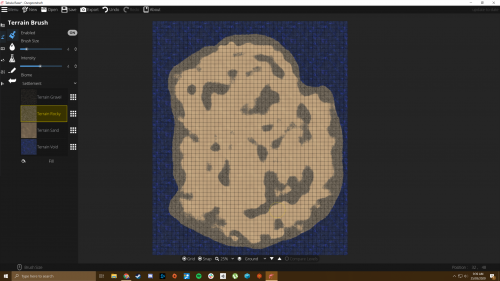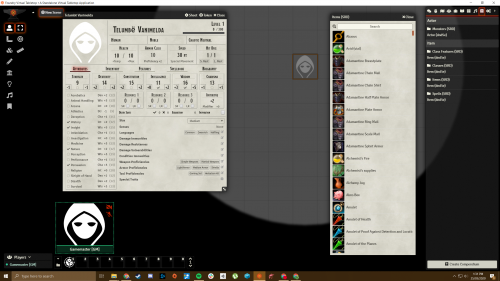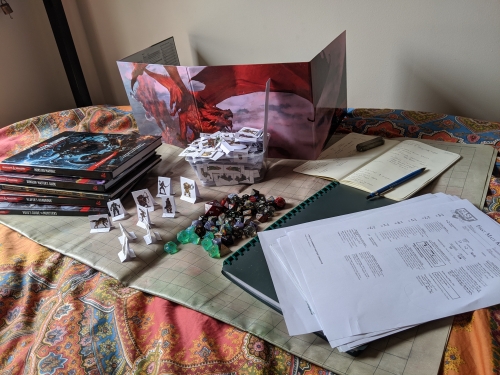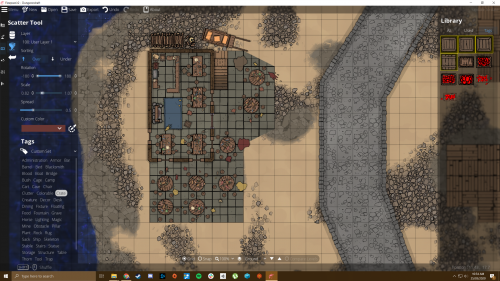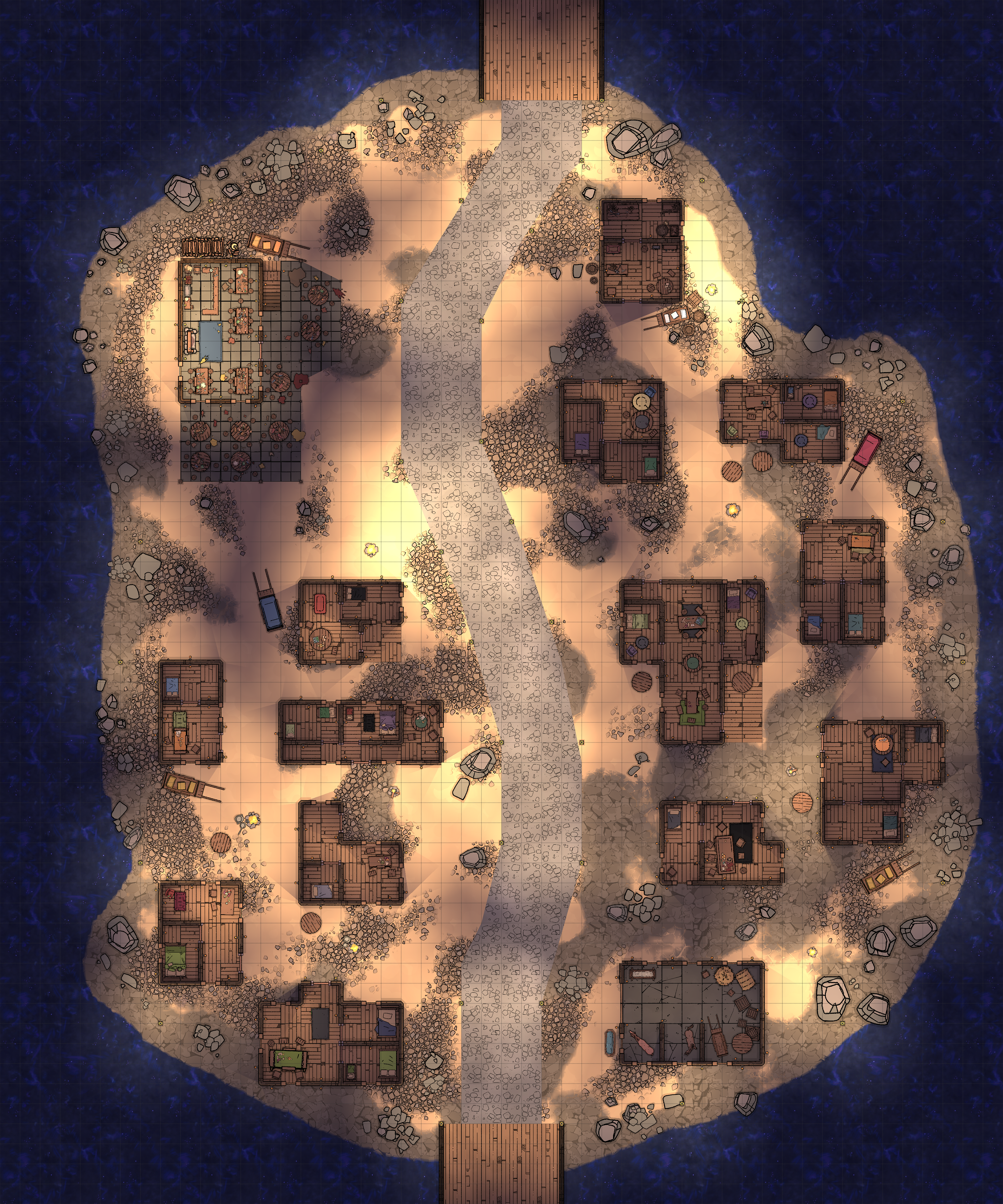
Theme:
I’m particularly interested in processes of meaning-making in games, in Role Playing Games and in how the player develops an attachment to objects in a game space. This week I chose to highlight my work putting together an online solution for our MAGI Tabletop Role Playing Game club. RPG’s commonly utilize a range of tools for play; writing, record keeping, dice, maps, illustrations, character tokens, etc. These objects have a role in promoting player engagement beyond their utility. Players commonly go to extra effort to embellish their tools, constructing elaborate spell books, character sheets, miniatures, illustrations, etc to facilitate their role playing experience and AS a role play experience.
Key questions:
- How can I transfer the physical play experience involved with playing tabletop role playing games (RPG's) to an online delivery platform?
- How is the online experience different to the analogue experience for me as a dungeon master?
Context:
Amidst the COVID-19 pandemic and the upheaval of my usual routines, I've had to move work, class and MAGI clubs online this week. Normally, I greatly prefer to play RPG's as analogue as I can. The tactile nature of rolling dice, writing on a character sheet, the Dungeon Master passing you secret notes, the smell of junk food and the mystery of what is going on behind the DM screen are all a huge part of the experience and being present with a group of friends with whom you are sharing a story is really important to me. I considered postponing the club until the pandemic is over but I have no idea how long that will be and I won't last long without an RPG in my life so I went ahead and began researching and putting together an online option.
Method:
- First I identified the gameplay elements I wanted to replicate:
- Face-to-face - webcam, video conferencing
- Rules books and guides - PDF, database
- Character sheets - digital character sheet, PDF
- Dice - virtual dice roller
- Maps - Digital whiteboard, webcam
- Characters - Virtual Tabletop
There are an increasing number of online tools for playing RPG's, ranging from simple dice rollers, character sheet assistants and note taking solutions all the way to VR compatible 3D simulations such as Tabletop Simulator (you can even flip the table in this one). I did some research into a number of options, some which address specific needs, some which attempt to provide an all-in-one solution. I settled on using two main tools; FoundryVTT (Virtual Tabletop) and Dungeondraft (RPG map maker)
- FoundryVTT allows me to host a web based virtual tabletop that my players can connect to via their web browser. It’s fairly cheap and allows me to maintain ownership of any content I create within it. It includes provisions for video conferencing, character sheets, dice rolling, maps, character tokens, lighting and some data modules to support settings such as Dungeons & Dragons 5e. Initial setup took me about 3 hours.
- Dungeondraft is a map making tool. It includes tiles and textures which I used to create a map for the game which I then imported into FoundryVTT. Considering the detail, the quality in the map and its size, it was a relatively fast process, taking about 3 hours to complete the map.
Reflection:
I really enjoyed making the map. I got a bit carried away in the process. The program is however, still unstable and I found it crashed fairly often so I had to get used to saving frequently. The quality and style are fantastic. The tools are quite good, but still need some work.
Setting up FoundryVTT was a bit challenging, I had to set up my home network security settings and create a certificate so I could run video chat. Once it was working I had to add modules and begin adding my own custom campaign data which I still haven’t finished doing. This is proving to be a potentially time consuming process but on the plus side the program organises this data in a compendium I can use again in the future for other games.
The down side of using a setup like this is that I have to prepare a lot more ahead of time. Usually I can run a session even if I haven’t prepared anything ahead of time, completely improv. I would normally just draw on a map with markers to roughly set up a play space and describe a lot using theatre of the mind.
We play Thursday night so I will have to see how well it works but I know there are many people who use this kind of setup to play RPG’s both online and in person so I anticipate it will work but I am interested to see how my players and I feel with the remote experience.
About This Work
By Nick Margerison
Email Nick Margerison
Published On: 25/03/2020

